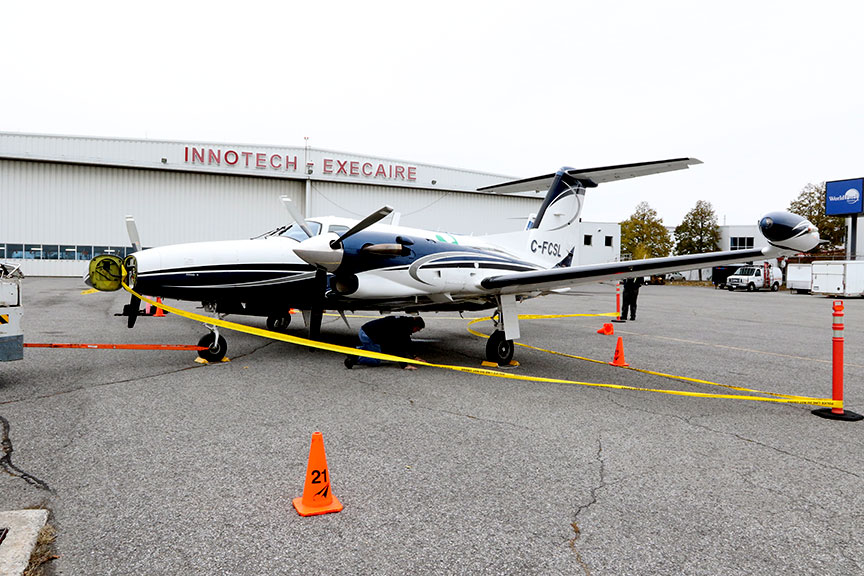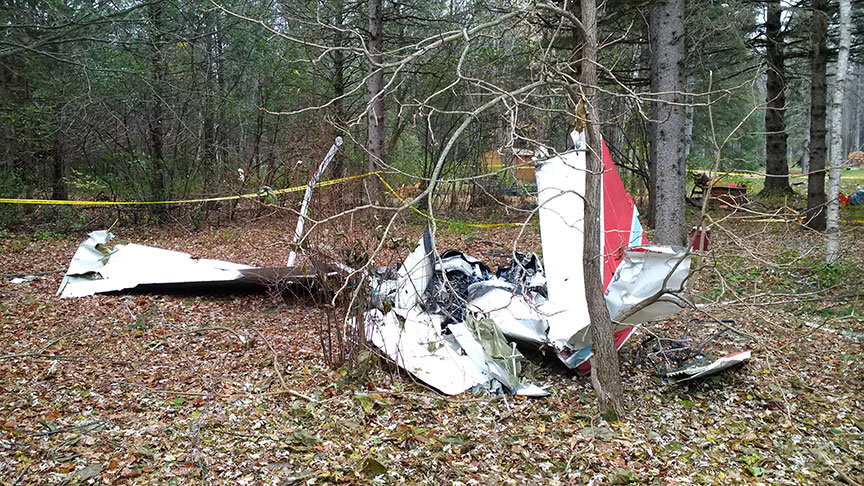Mid-air collision
Cessna 150G, C-FGMZ (privately owned)
and
NLG Air Inc.
Piper PA-42 Cheyenne III, C-FCSL
Ottawa/Carp Airport, Ontario, 1.3 nm S
The occurrence
On , at about 1010 EST, two aircraft collided near the Carp Airport located west of Ottawa, Ontario. The first aircraft was a Cessna 150 with one person on board who was fatally injured. The second aircraft, a Piper PA-42 (Cheyenne III) with two occupants on board, was able to fly to the Ottawa Macdonald–Cartier International Airport, where it landed at about 1030 EST.
Media materials
News release
Investigation report: November 2018 mid-air collision near Ottawa/Carp Airport, Ontario
Read the news release
Deployment notice
SB deploys a team of investigators to the site of a mid-air collision near Ottawa, Ontario
The Transportation Safety Board is deploying a team of investigators to the site of a mid-air collision near Ottawa, Ontario. The TSB will gather information and assess the occurrence.
Download high-resolution photos from the TSB Flickr page.
Class of investigation
This is a class 4 investigation. These investigations are limited in scope, and while the final reports may contain limited analysis, they do not contain findings or recommendations. Class 4 investigations are generally completed within 220 days. For more information, see the Policy on Occurrence Classification.
TSB investigation process
There are 3 phases to a TSB investigation
- Field phase: a team of investigators examines the occurrence site and wreckage, interviews witnesses and collects pertinent information.
- Examination and analysis phase: the TSB reviews pertinent records, tests components of the wreckage in the lab, determines the sequence of events and identifies safety deficiencies. When safety deficiencies are suspected or confirmed, the TSB advises the appropriate authority without waiting until publication of the final report.
- Report phase: a confidential draft report is approved by the Board and sent to persons and corporations who are directly concerned by the report. They then have the opportunity to dispute or correct information they believe to be incorrect. The Board considers all representations before approving the final report, which is subsequently released to the public.
For more information, see our Investigation process page.
The TSB is an independent agency that investigates air, marine, pipeline, and rail transportation occurrences. Its sole aim is the advancement of transportation safety. It is not the function of the Board to assign fault or determine civil or criminal liability.

